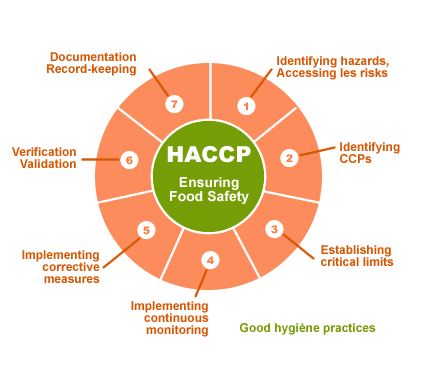

Many organizations do not have a choice and are forced to implement food safety and quality standards or stand the chance of losing business. With the plethora of standards which are available, selecting the appropriate standard may be a daunting task. Understanding your market, product and customer is essential to ensure selection of the right standard. This training workshop which assists organizations will the implementation of these standards. The approach is one which ensures that these standards are not merely marketing tools, but essential business management tools.
By the end of this course delegates will be able to:
Team Leaders, Managers, Line Managers, Supervisors, Team Leaders, Project Managers, Control Center Operators and Supervisors, Emergency Dispatchers, Security Personnel and CCTV Operators, HSE Officers, HSE Personnel, HSE Professionals, Emergency Response Team Members, HSE Managers and Auditors, Health & Safety and Environmental Professionals, Coordinators, Specialists and other full-time safety practitioners, Fire Officers, Loss Control Managers, Security Directors and Managers, Security Supervisors, Facilities Directors and Managers, HR and Administrative Managers with responsibility for security, Project Managers, Safety Inspectors, Plant Managers and Supervisors, Incident Control Point (Forward Control) Team Members, Supervisors, Advisors, Auditors, Laboratory Personnel, Emergency Personnel, Maintenance Personnel, Procurement and Supply Chain Managers, Engineers & Maintenance Personnel, Experienced and new auditors linked to the company’s HSE Management Systems
Identifying the Appropriate Food Safety and Quality Management Standard
Understanding the Role of Senior Management in Food Safety and Quality Management Systems
System Requirements
Legal Requirements
Legislation
Foundation Elements for Food Safety
The Food Safety Team
Applying Codex Principles to Perform a HACCP Study
Validation
CDGA attendance certificate will be issued to all attendees completing minimum of 75% of the total course duration.
| Code | Date | Venue | Fees | Register |
|---|---|---|---|---|
| HSE123-01 | 29-03-2026 | Cairo | USD 5450 | |
| HSE123-02 | 28-06-2026 | Muscat | USD 5450 | |
| HSE123-03 | 27-09-2026 | Manama | USD 5450 | |
| HSE123-04 | 29-11-2026 | Dubai | USD 5450 |

HACCP is internationally recognized as the most effective way to manage safe food, providing a structure for objective assessment of what can go wrong and requiring controls to be put in place to prev ...

HACCP principles and audit techniques This course is focused on how to perform a detailed audit of the HACCP systems of food and feed operations. It is designed to give participants a thorough unders ...
Providing services with a high quality that are satisfying the requirements
Appling the specifications and legalizations to ensure the quality of service.
Best utilization of resources for continually improving the business activities.
CDGA keen to selects highly technical instructors based on professional field experience
Since CDGA was established, it considered a training partner for world class oil & gas institution
3012, Block 3, 30 Euro Business Park, Little Island, Co. Cork, T45 V220, Ireland
Mon to Fri 09:00 AM to 06:00 PM
Contact Us anytime!
Request Info